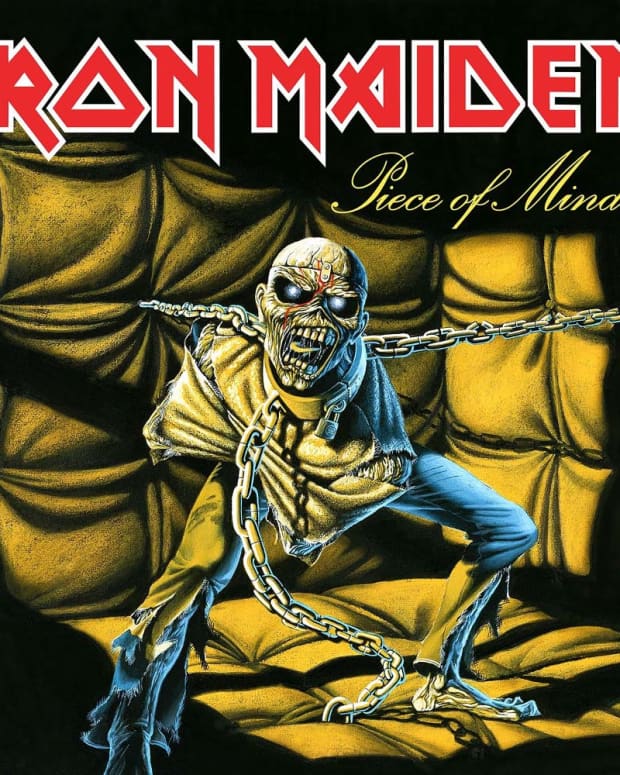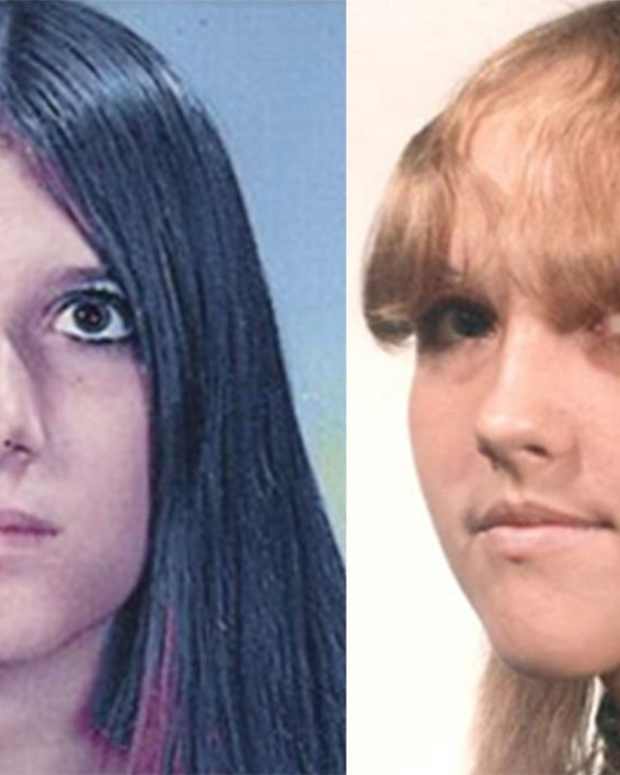What Is Caregiver Stress Syndrome?
Caregiving - A Journey Into The Unknown
Caregiver Stress Syndrome - The stress brought on by the unvarying, unending, unrelenting,care of a person who is totally or even partially reliant is insidious in that pulls out and chews up bits of the caregiver’s sense of self, self esteem, self worth, self confidence and self determination in barely noticeable increments. That is until one morning the caregiver wakes up after yet another night of too little sleep and notices that not only has their entire life as they knew it vanished, they too are gone, swallowed up by their role and no longer recognizable to themselves. The sense of isolation is profound, acute and overwhelming.
As our North American society ages, more and more family members are finding themselves cast in a role that is not of their making. It is a part that most are ill prepared for,having no knowledge, no training, and little experience. While almost all of us have taken care of another on occasion it was a short lived and temporary role rather than a chronic one. It is that experience of looking after another on occasion that leads the "caregiver" willingly into the role as most of us have little hesitation in lending ourselves to those we care for and hold dear. What one does not predict and indeed cannot predict is the quagmire of unknowns that they have innocently and with the best of intentions, stepped into.
The other factor that lends itself to the delusion that allows one to unwittingly don the costume and set out onto this new stage is that, “in the beginning”, when whatever catastrophe befell, there were friends and other family members about, sharing the load, offering comfort, lending themselves to the situation. If you have children, they will care for them, if you have a job, someone will fill in for you, if you have commitments, people are given to understanding when you have cannot meet them in the short term. However, these people still have lives to lead and they soon get back to living those lives. So they should but, for the caregiver, their leaving is often the first shovelful taken from what all too often is destined to become a veritable pit of despair.
Caregive Stress Syndrome, CSS Defined
In many homes across North America and other countries around the world those who care for disabled or chronically ill loved ones have gone about their business, unseen, unnoticed and unheard. In the United States alone one in every four families is caring for someone over the age of fifty and that number is expected to rise dramatically in the coming decade. Recently the stress experienced by family caregivers has actually earned a “label”. Dr. Jean Posner, a neuropsychiatrist in Baltimore, Maryland, describes “Caregiver Syndrome” as “a debilitating condition brought on by unrelieved, constant caring for a person with chronic illness or dementia”. Although the plight of those caring for chronically ill and/or disabled family members is not new, the fact that this group that works endlessly and unnoticed by the rest of society is are now being identified is only just beginning to come to the attention of the medical community. The term Caregiver Stress Syndrome is not yet recognized in American Medical Literature and it is not until 2003 that the term came into being and was given a proposed definition. A study done by the American Academy of Family Physicians stress in 2007 revealed that less than half of those providing long term care are even asked by their physicians if they have let alone it being addressed.
Caregiver Stress Syndrome (CSS) is a proposed definition:
A syndrome found in caregivers involving pathological, morbid changes in physiological and psychological function. This syndrome can be the result of acute or chronic stress, directly as a result of caregiving activities.
Source:
Guia DM. 2003. Caregiver stress syndrome.
Letters to the Editor. Townsend Letter for Doctors and Patients.
The Shock
In recent years, Caregiver Support Groups have been formed and the internet has made information on this “syndrome” readily available. The problem is the majority of caregivers do not seek help. There are valid reasons for this. Firstly, whatever it was that happened to cast them into this role was both sudden and unplanned; a shock has occurred and in that shock is a point of collapse. What collapsed? Their present time collapsed , the games they were playing in life collapsed, the positions they held and the roles that they played within those games has collapsed, their visions collapsed, their plans collapsed, their knowledge collapsed, and their goals and dreams for the future dreams collapsed. In one instant of absolute clarity they know,without a single doubt, that their own life and the life of their love one will not only never be the same again but that the jointly held visions for their future have been wiped-out – and then they shut it all down. And, from this collapsed universe, from this totally caved-in state, from this world that is no longer round but instead stretch before them in a vast expanse like some horribly over-sized pancake they emerge like zombies and begin to go through the motions of doing what must be done. Many people have walked out of a horrible car wreck insisting that they are fine only to collapse from the extent of their injuries. They can do so only because they are in shock. It is out of this state of shock that the role of caregiver is born.
Handle The Shock
While much attention is being given to the injured or ill party, this very newly formed “caregiver” is all but ignored but for being asked to pull out from a mind swimming in chaos, information relative to the care and well-being of their loved one. Therefore,before the stress of their role even begins to take a toll, even factors in,before they even take up their “care giving activities” there is a shock. A person in shock cannot create, a person in shock is at the effect of life; a person in shock is sitting in a collapsed universe. This is hardly an optimum setup for operating as a caregiver. Without handling the shock caregivers are doomed to burn-out, and to experience all manner of “symptoms”that make up what is now being labeled as “Caregiver Syndrome”. This plethora of symptoms is but a manifestation, the effects; but they are not the cause. The cause is contained within the shock. In that split moment of clarity and awareness a decision was made. It was made in a moment of extreme upset surrounded by negative, unwanted conditions and emotions. Go to the moment of shock, get that decision that was made, handle the negative emotions attached; in other words, handle the shock and the “caregiver”, the Self, is restored. That Self, can then reach for help, can gain the required knowledge and abilities to do their tasks, and access support and “Caregiver Stress Syndrome” will either not manifest or be easily recognized and handled before it gets a hold and begins its take over.
As it stands now, without handling the shock, the Caregiver is on a steep and slippery slope to their own emotional and physical health issues, issues that in caring for another they can ill-afford to have. Caregiver burnout is real and it is devastating!
- How To Care For The Caregiver
Heads Up When reaching out to a caregiver you will be heading into an area of life that you most likely, and hopefully, no little or nothing about and there are a few things that you need to know in order... - Caregiver Burnout?
If accountants don't grow old but simply lose their balance;and lawyers never grow old, they just lose their appeal; and doctors don't growold they just lose their patience; and if old blondes never fade... - Caregiver Survival Tips
There is all kinds of advice and survival tips for caregivers on the internet, in pamphlets from doctors offices, community health services and on it goes however, it has been my experience that the well... - Disabled Persons and Disability Resources HubMob
There are an estimated 43 million disabled persons in America alone. Disability statistics. Index to articles by HubPages Disabilities HubMob on disabilities and disability resources. - Disability Discrimination Equals A Lack Of Respond A...
As a society we have come a long way in the resources and equipment that are available to persons with disabilities but it is questionable whether our change in attitude towards those among us who are... - Society And The Disabled
The medical aspects of a disability are undeniable. A person who is disabled whether from birth or through accident or illness has certain impairments that disallow them full physical or mental function. ...
Comments
Kathy W on February 20, 2018:
Mother with Diementia , she already had a mental condition before so this makes it twice has had , she has 9 other kids that don’t care
raisingme (author) from Fraser Valley, British Columbia on May 30, 2013:
My apologies to those who made comments I failed to acknowledge. Just over two years ago my dear husband passed away. My mother had a stroke three months later and after a brief and sad "reprieve" from caregiving I was temporarily cast back into the role. My father passed away nine months later and eight months after that my beloved son broke his neck. As you may well appreciate, writing was not something I felt inclined to do! My heart goes out to all those who find themselves in the roll of Caregiver. I do not believe there is a more undervalued, unappreciated role on the planet. Warm hugs to all of you. J
Heather Schmid on April 02, 2012:
Our little man now 14 is low functioning autism he will always require all of our help support etc !! my husband's family offered help one time....Whatever all they could ever say is he will grow out of it or whatever b.s. My mom as given everything to relieve us on weekends and without her help we would never sleep !! Im grateful just grateful I love fridays !! I didn't even realize how tired I was until momma !!!
raisingme (author) from Fraser Valley, British Columbia on January 10, 2012:
Dearest Jennjen I cannot emphasize enough how much I understand. My husband passed away on New Year's Eve 2011 and I miss him very much however I am still getting over the exhaustion of having looked after him for eight years. Caregiving has to be the most exhausting, unrewarding, unacknowledged undertaking that can possibly exist. One thing that helped me when my mood level went out the bottom of my feet was to ask myself the question "What mood level am I in?" Once I identified it I described, out loud to myself, all the aspects of that mood level. The reason I did this that in order to answer the question and describe the mood level you are looking at it rather than sitting in it. Once I got it fully described I asked myself "What mood level would I like to be in?" Once I identified the mood level I would prefer to go about my day in I felt much better. The problem is the situation doesn't change so one can find themselves mired in a low mood level pretty quick so one has to be vigilant and observant about one's mood. A mood is made up of attitude and emotion so it is very important to get both aspects. One's attitude determines whether the mood goes up or down - same, same with an aircraft's attitude towards the horizon. If I had it to do over again I would have taken better care of myself - got my hair done once in a while, taken a bubble bath, listened to music, grabbed a Starbucks. Little things can make a BIG difference. My heart goes out to you. If you ever need to rant - email me - I AM HERE!
jennjenn519 from Cocoa, Fl on January 09, 2012:
Thank you for the write up. I take care of my husband, who is bi-polar and has multiple problems with his body. It is, in fact, exhausting for me. I feel guilty even admitting that. You have shown me why I feel so lazy all the time, and have lost interest in hanging out with friends and going to the gym. In a sense, sometimes I think his depression is contagious.
Whetumarama Tuhua from Rotorua on July 07, 2011:
24 years that should be a celebration of my son's beautiful life. And I have only just realised the huge cost to my own health, of 24/7 caregiving, night and day. Support systems to assist in the physical demands have been non-existent. Try explaining that to my GP, funders of respite care, family, friends, and now apparently EX partner. Nice to know that there's actually a diagnosis or label for me - apart from 'strong' or 'unreliable' or 'invisible'. Actually, I don't have any close family or friends left, because I haven't been able to maintain any social or working life - its a bit difficult when you never get any uninterrupted sleep, never have time to attend to injuries incurred in doing the work of 5 professionals, and when you have nothing left to give. Funny that though. Because I am stuck at home, the people who do actually visit always come seeking attention for their own problems, and they're nice enough to ignore my disabled son as though he doesn't exist, while I jump up and down to see to him in between making cups of tea for my honoured guests and listening to their pity parties. Oh well, I'm having a bitter as moment, because I can't be resentful of the child I love. But I can be resentful of all the highly paid bureaucrats who hold out on any support entitlements as though it was their own personal catfood budget. And I can be resentful of the fools who think I'm a liar or exaggerator when I say I've had one or two hours sleep - or who stare blankly at me then carry right on making further demands on my time and efforts. Tell you what though, this Hub is great, because you haven't got any trolls commenting about how wrong it is for Carers to feel smashed over.
Fluffy77 from Enterprise, OR on May 27, 2011:
Thank you for sharing this here, very useful and helpful advise here for those of us attempting to do this. At times very hard and an extreme struggle for us all.
wheelinallover on February 08, 2011:
rasingme My life then was really bad, I had no support till after he ran over me. I would do it again cause I loved my dad. The one that hurt me was that I was not there for, my mother. She died of brain cancer and I didn't get to her side till it was too late. She was still alive but there was nothing left of the person I had visited 3 months before. My wife was running my life and continued to do so for a year after my mother died. I was told three days after my mother died that she (my wife) had better not see me suffering from grief. It actually lasted almost a year but I broke down and the marriage was over. I don't understand how she lived through her losses, both parents, a brother, and husband without grief.
raisingme (author) from Fraser Valley, British Columbia on February 08, 2011:
My goodness that has the makings of a book! I tore my shoulder a year and a half ago preventing my husband from falling. Two days later he fell and broke his hip. He passed away on December 31, 2010. I miss him terribly and would do it all over again in a heartbeat just to have him with me.
Dennis Thorgesen from Beatrice, Nebraska U.S. on February 07, 2011:
I took care of my father for three years from a wheelchair, my mental health went down hill fast. He had senile dementia and his mental health went down fast too. I had a heart attack from the stress, which gave me a three week vacation, a little over a year later dad got in his truck (his drivers license was already gone) {he forgot}, Ran right over me, said he didn't see me. Had 6 weeks off that time trying to get my knee to work again. Got smart hired help and kept care of him till he died.
raisingme (author) from Fraser Valley, British Columbia on August 15, 2010:
I can see where it would be lorlie6. The image that brings to mind for me is two people; one entering through a doorway just as another is exiting the same doorway, connected yet not destined to meet. You are most welcome as is your contribution.
Laurel Rogers from Bishop, Ca on August 15, 2010:
I voted 'no' in your poll, raisingme, because I was in this situation in 1988. My mom was dying and I was pregnant-such a bizarre combination. This article is amazing in its insight and clarity.
Thanks for a great read, hon!
raisingme (author) from Fraser Valley, British Columbia on August 13, 2010:
You are most welcome. I have written a couple of others on the topic as well and invite you to read them as you may find them helpful. I am committed to raising the public's awareness of our existence and the challenges we face.
Aiden Roberts from United Kingdom on August 13, 2010:
I thank you raisingme for writing this hub :)
raisingme (author) from Fraser Valley, British Columbia on August 13, 2010:
It is not often that I am at a loss for words however in my deep understanding of what you have written here I find that I am just that. I am honored that you returned to read and pleased to hear that you have taken steps to regain your self esteem and self worth. I know it feels like hell on earth without them. Thank you for sharing your story.
Aiden Roberts from United Kingdom on August 13, 2010:
Hi Again
I bookmarked this hub a while ago to read but delayed reading it because this subject is very close to my heart.
I will explain why I delayed reading it:
My wife has suffered with Rheumatoid Arthritis for many years, over time her condition became so bad that I became her full time carer ( incidently I don't like using this term for someone I love).
In the grand scheme of things we were young'ish and became the focus of a PHd student who was writing a dissertation on the effects of RA on the family; specifically families with young children. We agreed to participate as we felt that our experience could help others. At the last moment my wife pulled out because she felt that it was bad enough dealing with the physical side of this disease without exploring the psychological (she has taken part in many studies since).
I continued with what was a very indepth and personal study, during the interviews I started to realise that in fact her disease had a dramatic effect on me, I understood the obvious things IE: job but had never even stopped to think what it was doing to my psyche.
Needless to say the study for a short period of time awakened a lot of negative feelings and highlighted that in fact I was suffering too. I hated myself for feeling this way but couldn't stop it. I had the sense to discuss this with the hospital and they counselled me to understand that these feelings are understandable and are a real problem if left alone.
Over time I regained my self esteem/worth and now recognise that I am no good to anyone if I bottle up my feelings or ignore them.
This is why I delayed reading this article for a while.
I write about RA as it is cathartic and my heart goes out to the millions of unsung heroes (some of them children) who give up so much of themselves to help another human.
raisingme (author) from Fraser Valley, British Columbia on July 09, 2010:
Thank you. 65 million people (29% of the US population) in the United States alone are tasked with the role of family caregiver. Our numbers will only increase world wide as our populations age. It is incredible that given these statistics Caregiving remains an unseen and undervalued roll.
Madison from NYC on July 09, 2010:
Super article! One that many can identify with including myself. Great job....thank you!
raisingme (author) from Fraser Valley, British Columbia on June 07, 2010:
Maruthrip my husband shared your fear. He has experienced things that I would not wish on the worst among us. No matter what circumstances one finds themselves in during the course of their life there is always, without fail, an opportunity to learn and grow and better ourselves. A caregivers stress comes about as a result of the negative decisions they made at the moment of shock, it does not come from the circumstances they find themselves in. Once you get the negative, hidden decision and handle that, the stresses associated with the role alleviate considerably. It is our negative decisions, not thoughts but decisions, that determine our attitudes and our outcomes. I write more on these topics in my other hubs. You may find some value there.
maruthirp from Hyderabad on June 07, 2010:
Being the who had suffered with stress I look any kind of stress like an evil. After reading this post I am really scared of this kind stress and pray god to not give anyone this stress.
U Neek from Georgia, USA on May 09, 2010:
Wow! This really hits home. I have been caregiving for my husband who has a chronic version of leukemia. Even though he is able to work and do his basic personal care, I have obtained a new "job." It is a lot of work and responsibility to stay on top of develops in treatments, schedule appointments, stay on top of test results and what they mean, continuing to try and give our children as normal a life as possible, while managing a home and our businesses. As I suspected, all of this stress has manifested in my deteriorating physical and emotional health. Thank you for writing this.
Kathryn LJ on May 06, 2010:
Great hub. I was the full time carer for 10 years for my terminally ill husband and delt with early onset dementia as well as the many other relentless symptoms that he endured before his passing. It took its toll not only on me but had a profound effect on the kids, who willingly took on care responsibilities and are still paying the price 6 years after his death. In 2008, carers in the UK saved the Govt 8 billion pounds. It's about time their needs were met. Thank you for highlighting this issue. Kathryn LJ
raisingme (author) from Fraser Valley, British Columbia on May 05, 2010:
Thank you nasus. I'm working on one right now called Caring for the Caregiver (or some such title)...now that I've started on this topic it will probably be quite a while before I'm "running on empty" and I do hope that it helps others!
nasus loops from Fenland on May 05, 2010:
This is a great hub. So far in my life the only care I have had to give is to my young son. However I watch a family member care for her husband day in day out as she has now for the past 16+ years due to strokes/TIA's. She has finally been put in touch with a support group and it has done wonders for her. I hope others can read your hub and learn from it.
malcolmb on May 05, 2010:
Excellent article. Even though I have only given the level of self-consuming care you describe once in my life, and for a limited period, I totally concur with your comments about the effects of the initial shock. What is equally profound is the general lack of training to handle emotional shock wherever it's source. Food for thought indeed.























